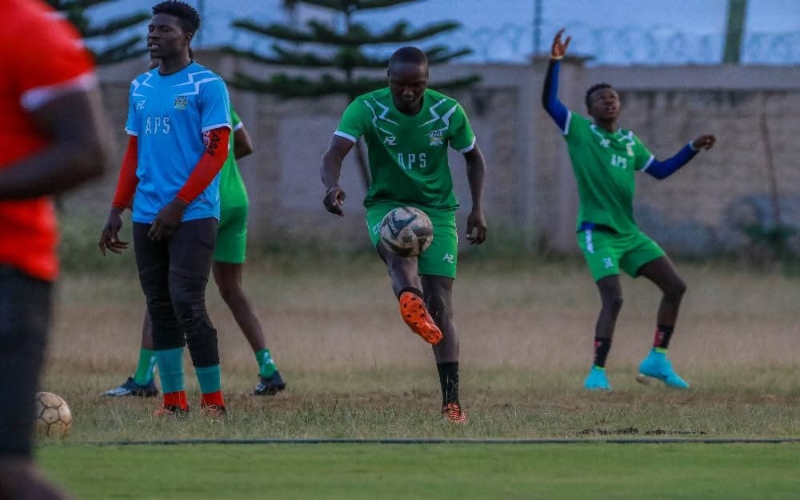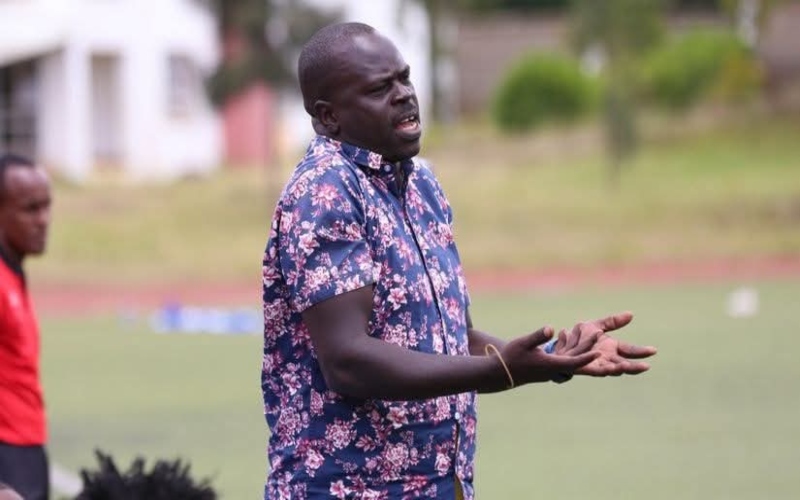Kenya probes claims of citizens being used as soldiers in Russia-Ukraine war

This follows reports that a 36-year-old athlete, Evans Kibet, was captured by Ukrainian forces after fleeing Russian military service he claims he was tricked into joining.
Kenya has launched investigations into reports that some of its citizens were trafficked to Russia and are now being held as prisoners of war in Ukraine.
This follows reports that a 36-year-old athlete, Evans Kibet, was captured by Ukrainian forces after fleeing Russian military service he claims he was tricked into joining.
More To Read
- Global arms sales hit Sh87.8 trillion in 2024 amid wars in Ukraine and Gaza
- Zuma’s daughter resigns from Parliament amid claims she sent South African men to fight in Russia-Ukraine war
- Jacob Zuma's daughter Duduzile under probe for alleged recruitment of fighters for Russia
- Government reveals over 200 Kenyans lured to join Russian military, some injured or stranded
- Kenya warns of “sophisticated menace” over citizens trafficked to Southeast Asia
- Ukraine accuses Russia of recruiting over 1,400 Africans for frontline combat
In a statement on Saturday, Foreign Affairs Principal Secretary Korir Sing’Oei said Kenya is now working through its Moscow mission to gather more information.
“We are keenly following information on three or four Kenyans allegedly trafficked to Russia and currently held as POWs by Ukraine. We shall provide additional information,” he said.
“In the meantime, we assure the families that our Mission in Moscow and our teams at HQ are pursuing the matter with all diligence.”
The case came to light after a video emerged showing Kibet pleading with Ukrainian forces not to send him back to Russia. In the footage released by Ukraine’s 57th Motorised Infantry Brigade, Kibet said he had been tricked into joining the Russian army and feared for his life.
He told Ukrainian soldiers that he had gone to Russia as a visitor, not for military service, but ended up in a military camp after signing documents he did not fully understand.
“I joined the Russian military not knowing I was being recruited. I have never been in the military, and I have never wanted a military job. I went there as a tourist and spent two weeks, but after I had one day left before I returned, the man who received me asked what I thought of Russia, and I said it was good. He asked if I would like to stay. I said yes, but my visa has expired,” Kibet said.
He explained that the contact person offered to help with his visa and promised a job.
“He came in the evening with documents written in Russian. I didn’t know it was a military job. He told me to sign and took my passport and phone, and that is how everything went wrong,” he noted.
After signing, he added that different men drove him about seven hours to a military camp.
“You already signed the documents; you cannot go back. You either serve or get killed,” Kibet recalled being told.
Kibet said he received just one week of military training before being sent to the frontlines, where he encountered other foreign recruits in similar situations. He eventually removed his Russian uniform and spent two days in the forest before seeking out Ukrainian troops.
“I walked into their camp after spending two days running… If I went back to the Russians, they would have killed me. I walked to them with my hands raised. They tied me, took me to their camp, and they fed me, gave me water. They (Ukrainian Defenders) are good people. In Russia, they probably think I am dead,” he said.
“I’m an athlete. I have been in athletics for over 10 years. I don’t want Russia; I will die there. I have a daughter who is 16 years old who stays with my mother. She needs me.”
Kibet’s family described him as a dedicated runner who trained in Iten, a town known for producing world-class long-distance athletes. Financial difficulties had prevented him from reaching the international level he aspired to.
In March, Kibet sought help from a training partner to compete in Poland, and later, a sports agent offered him a race in Russia. He said he did not know it would involve military service.
His ordeal highlights wider concerns over reports that Russia has been recruiting unsuspecting Africans with promises of jobs, only to place them in military camps and send them to the frontlines, claims that Russia continues to deny.
The investigation by Kenya is ongoing, with authorities promising to provide updates as more verified information becomes available.
Top Stories Today













































